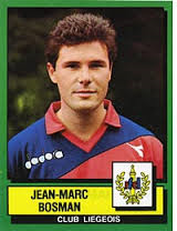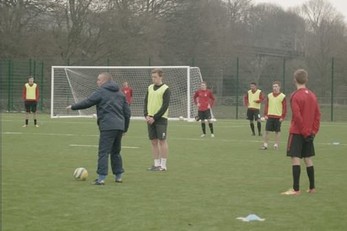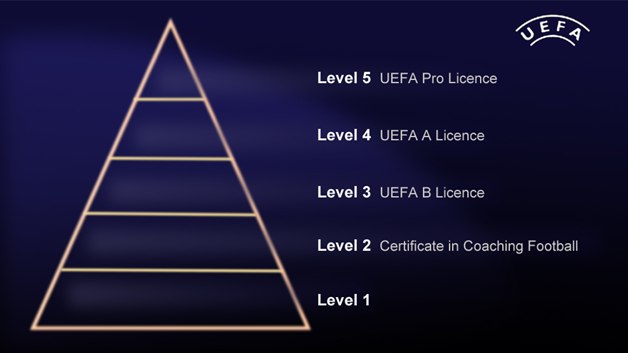
UEFA as an organisation finds itself in a somewhat curious legal jurisdictional minefield. Although UEFA is based in Switzerland which is outside the European Union the majority of UEFA members are now from states which are members of the European Union (30 out of 54 members). Some of these UEFA member associations who are based in EU member states also happen to be the powerhouses of European football on the international scene and in particular in the club game. In order to achieve a uniformity of rules across all UEFA members associations the rules laid down by UEFA must comply with EU Law. The most famous instance of this is the renowned Bosman Ruling.
The Bosman Ruling recognised that those working in football were workers and were entitled to leave clubs at the end of their contract period without the clubs being entitled to compensation just like any other worker. Over the years that followed UEFA and FIFA worked closely with the EU to ensure that the relevant rules governing employment and licensing requirements are not in conflict with EU Law although there are still some exceptions granted to football as an industry (including for example the restrictions placed upon the free movement of players under 23). Although the Bosman Ruling was a victory for player power and the free movement of workers, it inevitably lead to a huge increase in player wages and, along with other factors, a massive increase in the spending by football clubs across Europe. Inevitably this led to an increase in the number of football clubs encountering serious financial difficulties as they gambled on success in order to qualify for lucrative European competitions. UEFA, in response, put in place a number of initiatives in an effort to regulate football, initially from a financial point of view but gradually expanding to encompass all areas of regulation of the game to ensure best practice.
In order to coach at the highest levels however the UEFA club licensing rules state that coaches must have a UEFA ‘A’ badge. In the case of top tiers of senior football, including European competitions a UEFA ‘Pro’license is required by the regulations. In Ireland for example, clubs wishing to play in the League of Ireland must be coached by a manager who has the UEFA‘Pro’ license and all other coaches involved must possess at least a UEFA ‘A’license. While it is laudable that UEFA have set down minimum standards and there is no doubting the correlation between a greater number of qualified coaches and success at senior international level, a number a legal issues arise.
Given that football coaches are entitled to the same rights as any other worker within the EU they have the right not to have unfair and anti-competitive barriers to employment placed before them. Consumers of these services, namely the football clubs who are seeking to employ these coaches, also have rights to access a fair and competitive market. If a market is too tightly regulated access to the market itself will be restricted resulting in increased prices for consumers due to the lack of competition.
In addition to the costs issue highlighted by Paul O’Sullivan, which in of itself could be claimed to be an unfair barrier in certain circumstances, the issue of access to the training courses themselves is problematic. In order for prospective coaches to access the UEFA ‘Pro’license course they must have successfully obtained all other training badges. Furthermore, in order to be admitted onto the UEFA ‘Pro’ license course, each candidate must be involved in coaching with a professional football club or a group of elite players. Entry into the course is limited due to the intensive nature, with preference being given to those who are in imminent need a license for the forthcoming season and there are no guarantees that a training course will run each year. In Ireland for example, the course tends to run every second year and takes two years to complete.

This season alone in the League of Ireland both Cork City FC and Bohemians appointed caretaker managers to the positions of head coach after parting ways with their previous managers during the course of the season. Neither of the respective caretaker managers was in possession of a UEFA ‘Pro’ license. UEFA regulations stated that they could only continue in their position as caretakers for 60 days without the required UEFA ‘Pro’license. Both caretaker managers were precluded from continuing in their roles after that period (despite their extensive experience within the game), and given the restrictive and seasonal nature of the UEFA ‘Pro’ training course, there was no route open to the caretaker manager to attempt to enrol in a course during the season. As a result the clubs in question were forced to appoint a UEFA ‘Pro’ qualified coach from the extremely confined pool of qualified coaches in order to see out the season and comply with the UEFA regulations.
It is not argued that the requirement to have a UEFA‘Pro’ License is in of itself an unfair barrier of access to employment. UEFA as the regulatory body is just as entitled to insist on proper qualifications in relation to coaches as the Law Society of Ireland is in relation to Solicitors. The limited access to the training courses; the relatively high cost of the training course; the strict requirements of the UEFA Club Licensing system and the limited pool of already qualified candidates however all serve to create a closed system which could be seen as a natural monopoly and an unfair barrier to employment and competition.
Sean Ó Conaill lectures Law and Irish at University College Cork. He is former secretary of Cork City Football Club.

 RSS Feed
RSS Feed